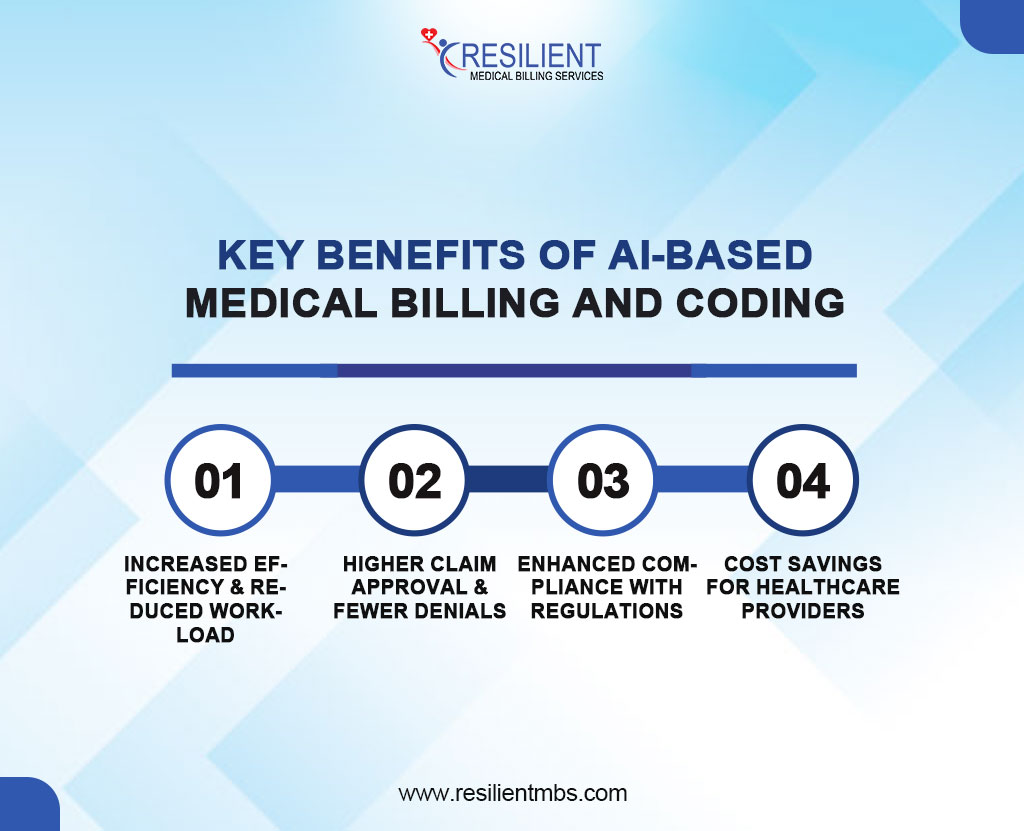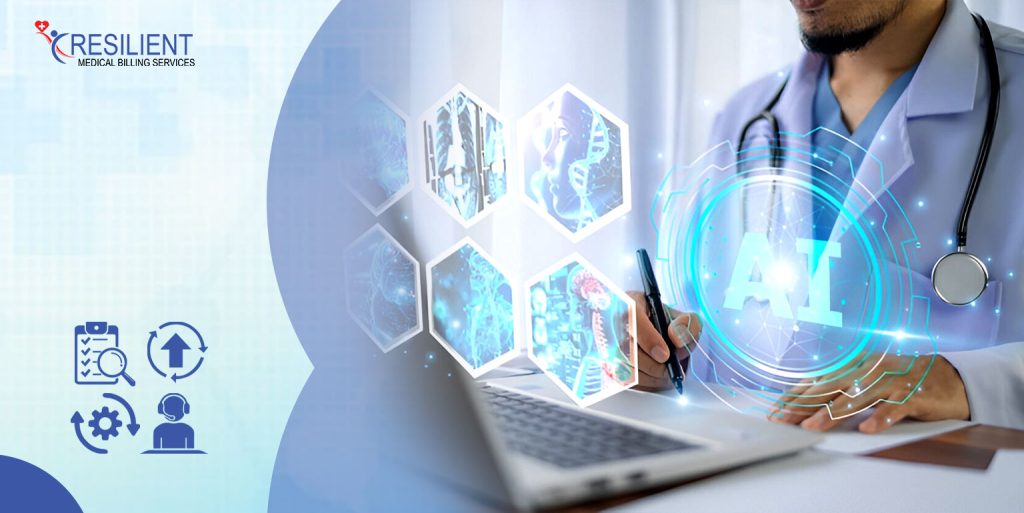AI is changing how healthcare is done by making it faster, more accurate, and better for patients. AI is transforming operations and reducing the amount of work that needs to be done by hand. For example, it is speeding up diagnoses and automating administrative chores.
AI is having a significant effect on medical billing and coding. It reduces mistakes in handling claims by up to 80% and speeds up reimbursements. According to a study by Black Book Market Research, 88% of healthcare providers who used AI-driven billing systems said they had fewer denials and better revenue cycle management.
A study from Accenture says that by 2026, AI-powered healthcare apps could save the U.S. healthcare system $150 billion a year.
This guide will discuss how AI is changing medical bills, AI in medical billing, the main benefits, and the newest AI-powered solutions that are making the field more advanced. Let’s jump right in!
AI In Healthcare
AI is changing healthcare by improving diagnosis, treatment planning, and administration. Machine learning algorithms and predictive analytics improve disease detection, treatment planning, and medical billing.
Radiology uses AI to increase imaging accuracy, while telemedicine uses chatbots and virtual assistants to engage patients. AI-driven automation minimizes administrative tasks, letting professionals focus on patient care.
As AI evolves, it could enhance healthcare outcomes, lower costs, and expand medical access worldwide.
What Is AI in Medical Billing?
AI in medical billing includes machine learning algorithms, natural language processing (NLP), and robotic process automation (RPA) that are used to make billing more efficient.
Providers can use these technologies to automate coding, check insurance claims, look for fraud, and ensure they follow the rules for medical bills.
How AI Automates Billing and Coding
AI-powered medical billing systems analyze medical records, assign accurate codes, and submit claims without human intervention. Through deep learning algorithms, AI can recognize patterns, detect anomalies, and recommend coding adjustments, reducing manual errors.
The Role of AI in Medical Billing and Coding
AI-Powered Systems for Claims Processing and Accuracy
AI-driven billing software automates claim submissions, lowering processing time and minimizing denials. NLP algorithms extract relevant information from clinical notes, ensuring correct AI medical coding. AI also cross-checks claims against payer regulations, preventing inaccuracies before submission.
Reducing Human Errors and Claim Denials
AI significantly lowers coding errors and duplicate billing difficulties. Automated validation ensures claims are submitted with the correct codes, decreasing rejections. Additionally, AI continuously learns from past claims, boosting accuracy over time.
Key Benefits of AI-Based Medical Billing and Coding
Below are some benefits of AI in medical billing and Coding:

1. Increased Efficiency & Reduced Workload
AI automates medical billing and coding, minimizing errors and streamlining claims processing. This reduces administrative burdens, allowing healthcare staff to focus on patient care.
2. Higher Claim Approval & Fewer Denials
AI detects coding errors before submission, reducing rejections and improving claim approval rates. This accelerates reimbursements and ensures compliance.
3. Enhanced Compliance with Regulations
AI updates coding databases automatically, ensuring adherence to HIPAA, ICD-10, and CPT standards. This reduces human error and mitigates audit risks.
4. Cost Savings for Healthcare Providers
Automation cuts administrative costs, minimizes claim denials, and improves cash flow, making AI a cost-effective alternative to traditional billing.
AI Innovations in Healthcare Billing and Coding for 2025
AI-driven medical pricing changes quickly as machine learning, automation, and predictive analytics improve. New and cutting-edge technologies include AI-assisted real-time coding for accurate medical code assignment, automated prior authorization to speed up insurance approvals, and innovative fraud detection systems that find billing problems.
In 2025, new AI tools will completely change the industry. These include NLP-enabled coding assistants that pull information from patient records, AI-driven revenue cycle management (RCM) platforms that automate the billing process and cloud-based AI billing software with real-time analytics for planning finances.
Machine learning and natural language processing (NLP) are important because they let computers automatically pull data from unstructured clinical notes, create self-learning AI models that improve coding accuracy, and turn spoken language into text for faster paperwork and claim submissions.
The Bottom Line
AI transforms medical billing and coding by improving accuracy, lowering claim denials, and automating administrative procedures. AI reduces human errors, speeds reimbursement timelines, and boosts healthcare providers’ finances by automating complicated activities.
Healthcare organizations seeking revenue cycle management must use AI in medical billing. AI-driven solutions improve efficiency and comply with changing healthcare laws. AI will become more important in medical billing and coding as it improves precision and adaptability.
Is your medical practice ready for AI-powered medical billing? Resilient MBS. offers AI-driven billing services that improve accuracy, cost, and efficiency. Contact us today.
You can improve your billing processes and keep up with industry changes by getting expert advice. Contact Resilient MBS LLC. to use AI to change how you bill for medical care!










